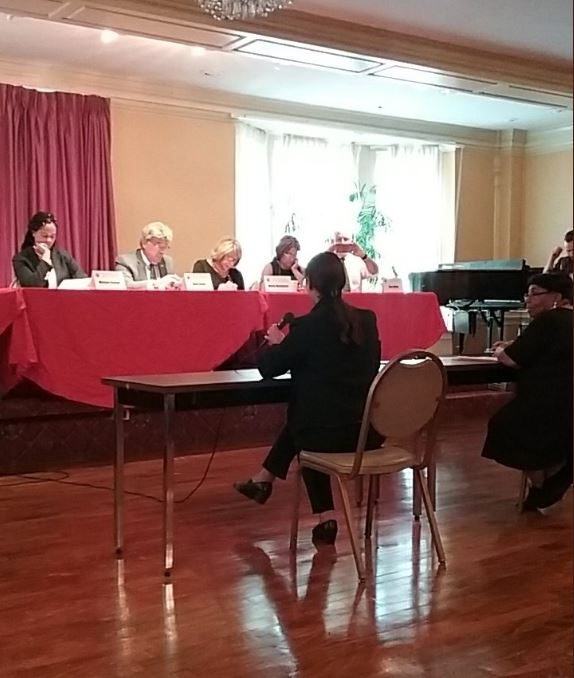 Today is Black Women’s Equal Pay Day, the day of the year a Black woman has to work to catch up to the wages a non-Hispanic white man earned in 2017, on average.
Today is Black Women’s Equal Pay Day, the day of the year a Black woman has to work to catch up to the wages a non-Hispanic white man earned in 2017, on average.
In Pennsylvania, Black women are paid just 68 cents for every dollar paid to a white man.
This afternoon, Women’s Law Project attorney Amal Bass testified at a House Democratic Policy Committee hearing convened by Rep. Morgan Cephas and the Women and Girls of Color Subcommittee of the Pennsylvania Legislative Black Caucus. The focus of the hearing was to explore the ways a recent U.S. Supreme Court decision known as Janus vs. AFSCME Council 31 threatens worker rights and all working families, particularly women of color.
The Janus lawsuit was funded by corporate interests. The Supreme Court’s dramatic decision overturns forty years of precedent, undermining the stability of public sector unions that have served as an equalizing force in our society.
In Pennsylvania, women make up over half of the public sector workforce, which includes teachers, first responders, and other government employees, and women also make up half of union membership. The Janus decision jeopardizes the economic security of these women, and it will make the struggle for equality even harder as we continue our effort to eliminate the wage gap between all women and men, a gap that is particularly wide for women of color.
Specifically, Bass testified to the anticipated affect this decision will have on Black women in Pennsylvania, and what the Pennsylvania Legislature needs to do to support workplace equality and equal pay in this new context.
From Bass’s testimony:
The Supreme Court’s decision in Janus jeopardizes the ability of public sector unions to preserve and improve wages, rights, and conditions of employment for workers by undermining the unions’ financial stability. For decades, and with the blessing of a unanimous Supreme Court in 1977 in a case called Abood v. Detroit Bd. of Ed, many states passed laws that require workers who declined to join the union to pay a “fair share” fee instead of the full union dues to cover the cost the union incurs for representing them in the bargaining unit. In a 5-4 decision, the Janus court overruled this forty-year precedent by concluding that requiring nonmembers to pay a fair share fee violates the First Amendment.
In her dissent, Justice Kagan said:
There is no sugarcoating today’s opinion. The majority overthrows a decision entrenched in this Nation’s law— and in its economic life—for over 40 years… And it does so by weaponizing the First Amendment, in a way that unleashes judges, now and in the future, to intervene in economic and regulatory policy.
The Janus decision has certainly weaponized the First Amendment, as dissent says. It has fashioned it into an instrument of inequality. The evidence shows us that the economic security and opportunities for government workers are higher in states with a fair share provision than in states without it. Workers in states that had a fair share rule, particularly women and women of color, have higher wages than workers in states without the rule.
The Women’s Law Project urges the Pennsylvania Legislature to:
• Close the Loopholes in Our Equal Pay Law
• Provide Reasonable Accommodations for Pregnant Women
• Provide Workplace Accommodations for Workers Expressing Breastmilk
• Raise the Minimum Wage/One Fair Wage
You can read or download Bass’s testimony here.
The Women’s Law Project is a public interest law center in Pennsylvania devoted to advancing the rights of women and girls.
Sign up for WLP’s Action Alerts here. Follow us on twitter and like us on Facebook.
We are a non-profit organization. Please consider supporting equal rights for women and girls by making a one-time donation or scheduling a monthly contribution.


